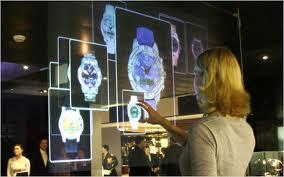Relying on a large corpus of natural interactions between visitors and a robot in a museum setting, we study a recurrent practice through which humans "worked" to maintain the robot as a competent participant: the description by bystanders, in a way that was made accessible to the main speaker, of the social action that the robot was taken to be accomplishing. Doing so, bystanders maintained the robot's (sometimes incongruous) behaviour as relevant to the activity at hand and preserved the robot itself as a competent participant. Relying on these data, we argue that ex ante definitions of a robot as "social" (i.e. before any interaction occurred) run the risk of naturalizing as self-evident the observable result from micro-sociological processes: namely, the interactional work of co-present humans through which the robot's conduct is reconfigured as contextually relevant.
翻译:暂无翻译




